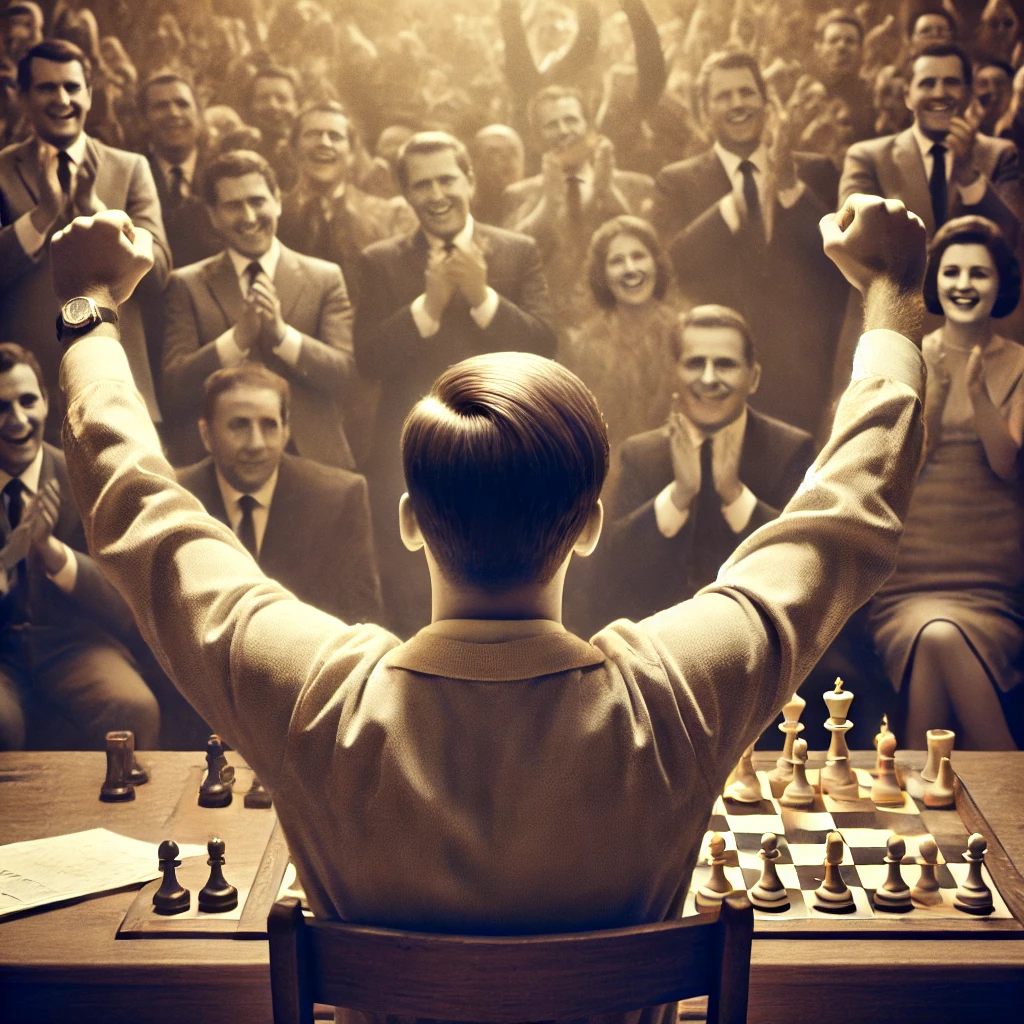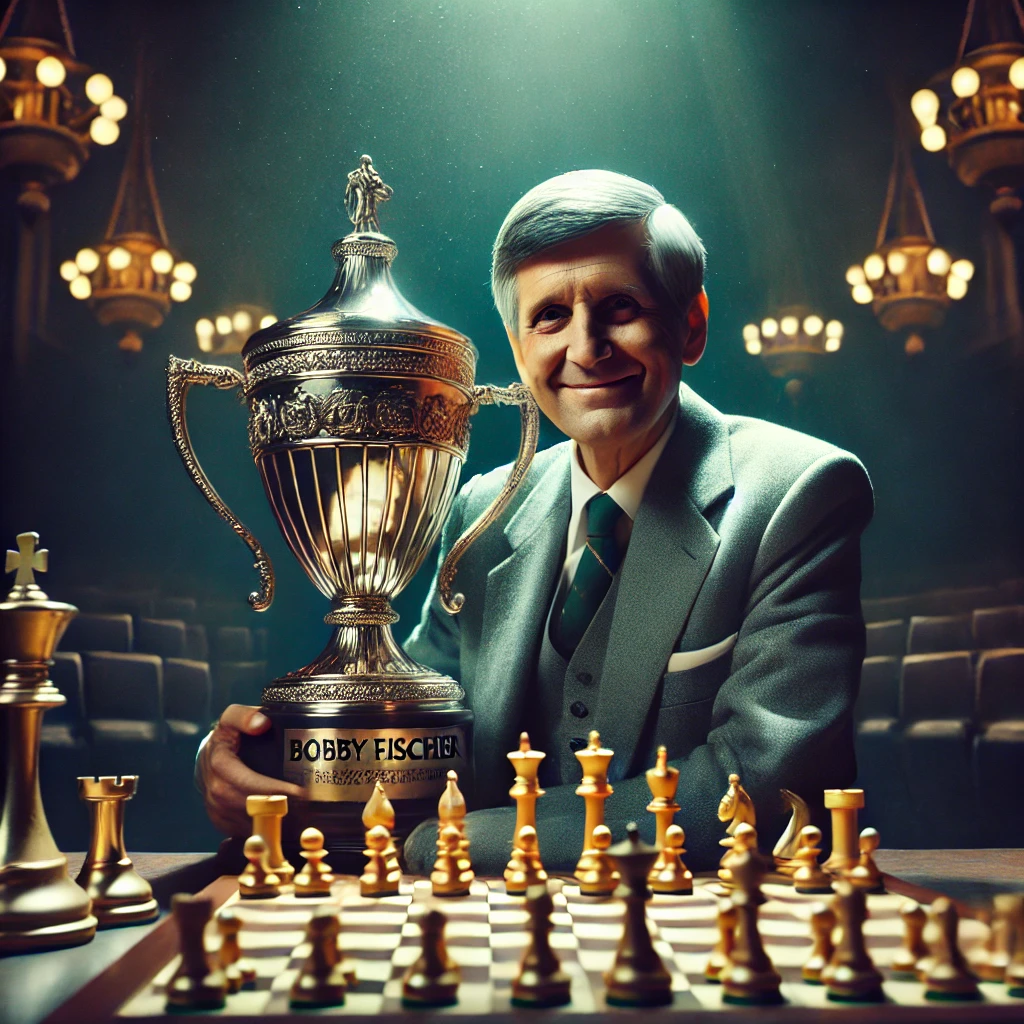On September 1, 1972, Bobby Fischer achieved a historic milestone in the world of chess by becoming the first American to win the World Chess Championship. His victory over Boris Spassky of the Soviet Union in Reykjavik, Iceland, marked a significant moment in chess history and was a key event in the Cold War era, reflecting the intense geopolitical rivalry between the United States and the Soviet Union.
The match, widely regarded as the “Match of the Century,” began on July 11, 1972, and drew global attention due to the high stakes and the personalities involved. Bobby Fischer, an American chess prodigy known for his exceptional skills and unconventional style, faced Boris Spassky, the reigning World Champion from the Soviet Union. The tournament was not only a contest of chess mastery but also a symbolic battle between the two superpowers of the Cold War.

The Tournament and Its Impact
Fischer’s journey to the World Chess Championship was marked by intense preparation and dramatic performances. The match against Spassky was a grueling contest of skill and strategy, with Fischer initially trailing but eventually staging a remarkable comeback. His victory in Game 6, which he won with a brilliant and unexpected move, was a turning point in the match. Fischer went on to win the championship with a final score of 12.5 to 8.5, clinching the title on September 1, 1972.
Fischer’s win was more than just a personal achievement; it was a triumph for American chess and a significant cultural event. The match attracted widespread media coverage and captured the imagination of people around the world. It helped to popularize chess in the United States and increased interest in the game globally. Fischer’s victory also represented a symbolic victory for the United States during a time of intense political and ideological competition with the Soviet Union.

Legacy and Influence
Bobby Fischer’s victory in the 1972 World Chess Championship had a lasting impact on the game of chess and on international sports. His remarkable skill, innovative strategies, and intense focus changed the way chess was played and perceived. Fischer’s influence extended beyond the chessboard; he inspired a new generation of players and contributed to the growth of chess as a popular and respected sport.
Fischer’s legacy is remembered for his contributions to chess theory and his role in elevating the profile of the game. His match against Spassky remains one of the most celebrated events in chess history, symbolizing the power of individual brilliance and determination. Fischer’s achievements continue to be a source of inspiration for chess enthusiasts and players worldwide.

The events of September 1, 1972, highlight a moment of great significance in chess history. Bobby Fischer’s victory was not only a personal accomplishment but also a cultural milestone that bridged geopolitical divides and left an enduring legacy in the world of chess. His triumph over Spassky is remembered as a defining moment that shaped the future of the game and inspired generations of players to come.
